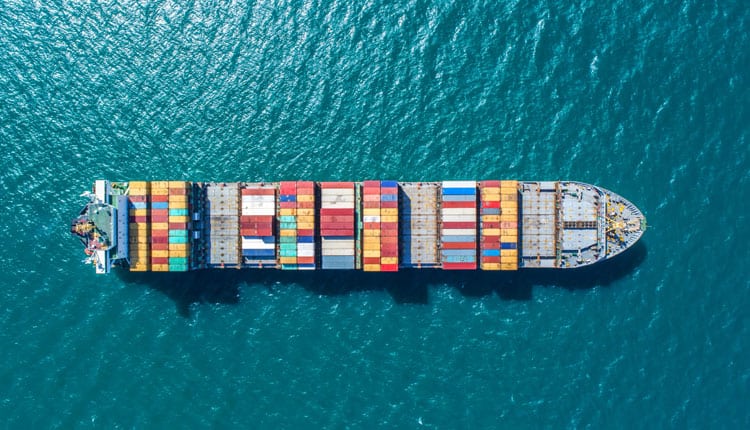By Prof. Tanmoy Kundu, Assistant Professor, Operations Management & Quantitative Techniques, International Management Institute, New Delhi
The global logistics sector is undergoing a significant transformation, driven by the ever-evolving capabilities of Artificial Intelligence (AI). Defined as the ability of machines to mimic human intelligence, AI is fundamentally reshaping the logistics landscape. AI’s ability to process massive amounts of data, make smart decisions, and predict outcomes makes it essential in logistics. AI has helped logistics automate and streamline processes, enhance customer experiences, and improve the overall efficiency of the supply chain system. As outlined in a McKinsey report, early adopters who have effectively implemented AI-enabled supply-chain management have achieved impressive improvements. These include a 15 percent reduction in logistics costs, a 35 percent optimization in inventory levels, and a remarkable 65 percent enhancement in service levels, surpassing their slower-moving competitors. By examining the following specific use cases and analyzing their impact, this article aims to shed light on the exciting future that AI holds for the logistics industry.
Demand prediction and inventory optimization
Leveraging massive datasets and advanced algorithms, AI is revolutionizing demand forecasting and Inventory Optimization. Through the analysis of extensive historical data, encompassing sales figures, weather patterns, and social media trends, AI algorithms prove adept at accurately predicting demand. Similarly, by analyzing data from customers, suppliers, manufacturers, and distributors, AI-powered tools enable companies to optimize inventory levels, minimizing stockouts and reducing costs. For instance, Mahindra & Mahindra boosted forecast accuracy by 10% with Blue Yonder’s AI-driven solution. Similarly, Shell and Equinor’s “Shell Inventory Optimiser” leverages historical data and analytics to optimize spare parts inventory, resulting in a projected 13% reduction in inflow and significant cost savings.
City logistics and route optimization
AI-powered route planning empowers transport and logistics companies to seamlessly integrate data and optimize travel routes based on real-time factors like traffic, weather, and vehicle capacity. This intelligent approach reduces fuel consumption and emissions, contributing to a more sustainable future. UPS serves as a prime example with its Dynamic On-Road Integrated Optimization and Navigation (ORION) technology, which leverages advanced algorithms, AI, and machine learning to deliver accurate ETAs, enhanced dependability, and superior responsiveness.
Warehousing and fulfillment operations
AI transforms warehouses into automated hubs, where robots equipped with computer vision and machine learning seamlessly navigate complex environments, identify items with precision, and accelerate picking and packing. This automation enhances accuracy, expedites processes, and reduces manual labor, empowering workers to tackle more complex tasks. For example, Alibaba’s Cainiao, uses over 100 self-charging, Wi-Fi-equipped AGVs that leverages AI for smarter and faster fulfilment. Additionally, many of their facilities deploy cobots, fostering human-robot collaboration. Similarly, Amazon’s AI-powered “Kiva” system employs a part-to-picker system, significantly reducing fulfillment time.
Risk management
Further mitigating risk, AI analysis enables proactive management. Platforms like DHL’s, monitoring millions of online/social media posts, leverage advanced machine learning and natural language processing to identify impending supply chain disruptions—material shortages, access issues, and supplier status changes extracted from online conversations. Similarly, FedEx employs “SenseAware”, an AI-powered system utilizing sensors and algorithms to track package conditions (temperature, humidity, etc.) in real-time, ensuring optimal delivery of sensitive items.
End-to-end visibility and transparency
AI is essential to supply chain transparency, empowering both businesses and customers. Real-time shipment updates, powered by AI platforms, provide peace of mind and visibility into the journey of goods. Embedded sensors in containers and trucks track location, condition, and environmental factors like temperature and humidity, enabling proactive issue anticipation and product integrity maintenance. This data-driven transparency fosters collaboration and trust among all stakeholders, ultimately enhancing supply chain efficiency.
Customer relationship management
AI personalizes the delivery experience, anticipating customer preferences and offering flexible options like time slots and locations. It also streamlines customer support through AI-powered chatbots and virtual assistants. A prime example is “Marie,” a joint venture by BearingPoint and DHL, which leverages AI to automate chat-based inquiries. This reduces wait times for customers and frees up agents for more complex issues. Similar AI-powered chatbots are seen in quick-commerce platforms like BigBasket, Blinkit, and Zepto.
The road ahead
As technology advances, such as the emergence of blockchain (BC), digital twins (DT), and extended reality (ER), the innovative applications of AI in logistics will flourish. Its strength lies in analyzing complex data, anticipating challenges, and proposing adaptable solutions across diverse contexts. However, human expertise remains crucial for navigating specific issues, comprehending community needs, and delivering culturally sensitive services. Therefore, integrating AI’s data-driven insights with human empathy optimizes efficiency and effectiveness across logistics sectors. Note that concerns regarding data privacy and security arise with AI’s data-intensive nature. Success hinges on strategic AI integration, fostering human-machine collaboration, and proactively addressing ethical considerations. Herein, responsible AI adoption can unlock the potential for enhanced logistics efficiency, sustainability, and customer satisfaction. However, responsible AI development and deployment require robust data governance frameworks, making it the need of the hour.



